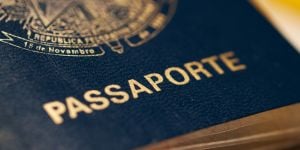Considerations surrounding Brazilian citizenship and naturalization
Last activity 08 December 2019 by Donstanley
70156 Views
256 replies
Subscribe to the topic
Post new topic
Hello Max,
The home visit is standard practice both with applications for any Permanent Visa based on marriage, Brazilian child, family reunion, stable union and with naturalization. Each case is different and there is absolutely no way to predict how long the process will take following the home visit. It depends on a number of factors, size of the city where the application is made, workload at the headquarters of the Federal Police which could delay forwarding the file to the Ministry of Justice and then the whole different level of bureaucracy at the Ministry of Justice too. It takes as long as it takes, there is absolutely nothing one can do to speed the process along. One needs a very large dose of patience when it comes to dealing with anything involving immigration in Brazil as those involved have absolutely no concern whatsoever that our lives go into a prolonged state of HOLD while they sit around doing very little.
Cheers,
William James Woodward, EB Expérts Team
ProRussian2014 wrote:Dear James,
My wife is an American citizen from Brazilian mother since last few years she is living and working in Brazil,
If your wife has a Brazilian mother, Naturalisation is not the correct path. She should have applied for "opção de nacionalidade" in federal court.
It's quite possible that the Ministry of Justice will decide, in due time, that hers is not a case of naturalisation.
Hi Sven,
Thanks for the heads up on that option, it sure is helpful. Would it matter WHEN she was born or is it different than those "born before"???
Cheers,
James
Thank you so much james 
Thanks for your reply  .....at the moment she is waiting for ordinary naturalization and so far she have no idea how long its gonna take... approximately how is the process of "Opção de Nacionalidade" and onward from here which option is less time consuming?
.....at the moment she is waiting for ordinary naturalization and so far she have no idea how long its gonna take... approximately how is the process of "Opção de Nacionalidade" and onward from here which option is less time consuming?
Regards
Max
Hello Everyone, this is my first post i want to ask James, Max and Lawer_Rio
I come from Italy now i live in SoUth Brazil and run my own business i have asked for Brazilian Naturalization and they come to visit me as well last month i visit the local DPF office and ask information on the Naturalization case they said they have send my application to Brasilia, I want to know if anyone been to this process? how is the naturalization process after DPF send everything to Brasilia...More or less How much time?
Thank you All
Vincenzo Ziv Oliveira
Sorry I'm confused... are you actually talking about the naturalization process (becoming a Brazilian citizen) or are you really talking about the VIPER Permanent Visa (Permanência Definitiva) process? Do you already have the VIPER Visa and have you held a VIPER Visa for a minimum of one year (if naturalizing based on marriage or Braziian child) or for at least 4 years if ordindary naturalization? These are two completely different issues and the Permanent Visa does not make you a citizen.
I really think you are confusing the two terms. If you're talking about the VIPER the process can take anywhere from one to two year after the home visit (sometimes even more).
Cheers,
William James Woodward, EB Experts Team
i processed for Natrulization to become Brazilian National, I been doing business here over five years and married to Brazilian citizen and have a Brazilian/Italian child as well and now waiting for Brazilian Citizenship, they come to visit us few moths ago and last time when i go to find out further with local DPF they said they already send my case to Brasilia.. so
Do you have a VIPER Permanent Visa and a Cédula de Identidade Estrangeiro already? If you do then yes, you're talking about naturalization. You should already know just how long it took for the government to process your visa. Do you think that they will do the naturalization any more quickly? Not a chance! Everything done by the Federal Police and Mininstry of Justice regarding immigration takes forever, you need to be patient because absolutely nobody can tell you exactly how long it will take. I was in a process for over 4 years and it never got done. I entered another one based on my Brazilian child and that one took 2 years. I'm now waiting for my CIE and it will take many months yet!
Great, So i think Naturalization process is slow maybe there is long Q also, Regarding my VIPER PR & RNE its took around eight months in my case. However i will update further if i get Naturalization Certificate this year.
James plz do update if you get your done with in next few months.
Cheers
Hi John,
That's exactly why I thought that perhaps he was confusing the VIPER process with naturalization. I've never heard of a home visit being conducted for the purpose of naturalization and found it very strange indeed.
It seems ridiculous, and the logic escapes me completely, why one would need to conduct a home visit in the first place when an application is made on the basis of having a Brazilian child since the VIPER would never have been granted in the first place without the "sindicância" (home-visit). Regardless of whether or not the applicant actually has care and custody or even resides with the child, the fact that they support the child still gives them the continued legal right to permanency and thus to become a naturalized Brazilian citizen too.
But, as you so aptly pointed out... this is Brazil and nobody can fathom what the bureaucratic machine really does in this country.
Cheers,
William James Woodward, EB Experts Team
Hey John,
anyone can apply for Naturalization who married to Brazilian Citizen or who is father/mother of a Brazilian Citizen and an investor or bussines person with VIPER residence status when any one request for Naturalization you will pay the fee and submit all necessary and anyone who want to apply for Naturalization have to pass Portuguese language test as well at the end Policia Federal will give you a Protocolo, On that protocolo your residence status will be as (Pedido de Naturalização) than few months later a team of Police Federal will come to your residence place they will ask your neighbours and few people around they as people such as:
How long he/She is living here?
How many kids do he have?
Do you know where he/She is from?
Do you know where He/She is working? etc....
The purpose of their visit is local references and to see if that person have settle life in Brazil.
You can also find more information on the following link:
brazzil.com/ikonboard%20archive/Brazzil%20Forum%20-%20Naturalization%20-%20Police%20Visit
John,
If you want you can apply for the Naturalization because on the Naturalization application you will have to write your current and previous address and how many years months you lived there, Same Like ...in the United Kingdom when anyone want to open a Bank account they ask for your current and previous address and how many years and months you stay there etc... I use to live in SW14 East Sheen 
wjwoodward wrote:Hi Sven,
Thanks for the heads up on that option, it sure is helpful. Would it matter WHEN she was born or is it different than those "born before"???
Cheers,
James
There where several changes over the years. Yes, the when is important. Each case is specific, but it's never a case of naturalisation. It's either declare the birth at the consulate or do the "option" in federal court.
ProRussian2014 wrote:Thanks for your reply
.....at the moment she is waiting for ordinary naturalization and so far she have no idea how long its gonna take... approximately how is the process of "Opção de Nacionalidade" and onward from here which option is less time consuming?
Regards
Max
That depends on where you live, each federal court is different. Some are quite quick, other slower than a snail.
The naturalisation (in my case) took 6 months..
LondonJohn wrote:I'm wondering what the purpose of the visit is, because having Brazilian born child gives the right to naturalization,
You don't have a right to naturalisation. You have a right to remain in Brazil, you have a right to a permanent visa, and you have the right to apply for naturalisation. However the granting of nationality is a discretionary administrative decision.
HOWEVER, you do have the constitutional right to REQUEST the Brazilian nationality if you live here for 15 years uninterrupted.
It may all seem the same, but it isn't.
wjwoodward wrote:It seems ridiculous, and the logic escapes me completely, why one would need to conduct a home visit
Because the granting of nationality is a discretionary decision. They may deny on any grounds, although I doubt that happens.
I assume it is to ascertain that you really live in Brazil.
Thanks Rio Lawyer 
Your information is really valuable and helpful.
Cheers
Hello William,
First, thank you for all your highly-informative posts. You've helped me a lot already, so I'm in your debt already! :-)
I was wondering if you could point me to a clear definition of "uninterrupted residence" under Brazilian immigration law? I've been living in Brazil since January 2010 with only a handful of brief trips to the US, Uruguay, Argentina; never more than 8 days as I recall. To obtain a new Brazilian visa, I need to present a non-criminality certificate to the Brazilian consulate and am not sure whether I need one from the US (I'm a US citizen) or just a Brazilian certificate. As I understand it, if I meet the Brazilian definition for "uninterrupted residence" in Brazil for more than two years, then I only need the Brazilian non-criminality certificate.
Are you aware of where I could find the definition for "uninterrupted residence" under Brazilian law?
Thank you (very much) in advance!
Best,
John
By the term "uninterrupted residence" first of all you must understand that you don't "become" a permanent resident of Brazil until you actually are granted the VIPER Permanent Visa, so I presume this would be based solely on the date of publication of your request for "Permanência Definitiva" in the Diário Oficial da União (DOU) as everything else here. Regarding trips outside of Brazil that do not exceed the 90 days permitted during the VIPER application process probably would not have any effect on the count for the waiting period, however the 2 years permitted outside Brazil without losing permanent status certainly might. If one is outside Brazil in excess of these limits generally speaking permanent status is revoked.
For "Common Naturalization" one must have held their VIPER for a period of 4 years in order to qualify to request naturalization. If the applicant has a Brazilian spouse or child, this waiting period CAN be reduced to one year. That said, citizenship is always discretionary and each case is judged on its own merits. Regardless of anything else, all applicants must meet all of the requirements including passing a fluency test in the Portuguese language.
The only exception to this definition of uninterrupted residency, that I could imagine, would be for those who have the constitutional right to citizenship after 15 years in Brazil.
Cheers,
William James Woodward, EB Experts Team
Thank you very much, I think I see the issue more clearly now. So, I suppose my question was stated incorrectly. What I need to determine is whether *living* in Sao Paulo for four years with several brief trips abroad would necessitate just a Brazilian non-criminality certificate, or also a US certificate as well.
Cheers, John
You will probably require both a Brazilian "Atestado de Antecedentes Criminais" which you can apply for online and a Certified Criminal Record Check from the USA, both must be no more than 90 days old when submitted.
Online: http://www.dpf.gov.br/servicos/antecedentes-criminais/
In São Paulo you can also receive a copy of the Brazilian Atestado de Antecedentes Criminais at Poupa Tempo (there are several, but I think Sé will probably be best) it is usually ready same day.
Cheers,
William James Woodward, EB Experts Team
I applied for naturalization about a month ago and am of course getting the Registro não encontrado message when checking the http://www.justica.gov.br/acesso-a-sist … -processos page. Is it possible for a lawyer or for someone within the Federal Police to expedite the process at all? Having to wait 6, 12, or 18 months will cause a lot of problems for us.
Hello felixxx,
Are you really talking about NATURALIZATION as a Brazilian citizens or are you confusing that process with your application for "Permanência Definitiva" a VIPER Permanent Visa through the Policia Federal? They are two distinctly different things.
If you're talking about the VIPER application, there is absolutely nothing that will speed it up. It takes as long as they need to get around to doing it, in most cases two years or more from the date of application. You'll just have to be patient, we all have gone through exactly the same thing. In my case I fought with them for 5 and a half years until I finally got my permanent resident status and Cédula de Identidade Estrangeiro. It's frustrating, but there is nothing to do but wait. In fact, I know from my own painful experience the more you contact them to try and find out, the more irritated they become and will often delay on purpose in order to retaliate.
If you've actually applied for citizenship that is handled by a lawyer and it is done in the Regional Federal Court in the jurisdiction where you reside. Naturalization is something that you can only apply for once you've actually been a permanent resident for 4 years (i.e. held your VIPER for 4 years) unless you are married to a Brazilian citizen or have a Brazilian child, then you can apply for naturalization 1 year after having been granted your VIPER.
I'm sure you're really talking about the first of these two processes.
Cheers,
William James Woodward, EB Experts Team
Yes, I am talking about naturalization. I am married to, and have a Brazilian child. I have had a permanent visa/VIPER for just over a year. Turned in all the documents for the citizenship application to the local federal police last month and they gave me a protocol number. I understand that eventually something will be published in a journal and when that happens I am to print it and take back to the local federal police. After that I must appear before a federal judge and do something in order to receive the naturalization certificate.
Have the Federal Police made a home visit regarding the naturalization process yet? They will do one just the same as they do with the VIPER application visit. Until that happens your application hasn't even left the DPF yet.
Cheers,
William James Woodward, EB Experts Team
No. This is the first I have heard of them making a home visit for a naturalization application. I did my VIPER at the consulate outside of Brazil (done in a couple hours, what a difference to trying to do something within Brazil!, still took 6 or 7 months to get the CIE once I filled out the papers for it in Brazil) and did not need to provide any proof of it being a legitimate marriage because we had been married for so long. I think if married for more than 5 years they don't require the home visit or any additional supporting information to validate the marriage.
Thanks
The home visit for VIPER based on marriage or Brazilian child is always part of the process here in Brazil, it is not done when the VIPER is processed by the Consulates abroad. I actually just found out a short while ago that the Policia Federal also do a home visit for naturalization applications here too. I actually thought it was kind of redundant, but it was explained to me that the reason is because naturalization is discretionary on the part of the government. Anyway, you're finding out that when dealing with anything involving immigration and the Policia Federal here in Brazil one needs the patience of Job, since everything takes forever here.
Cheers,
William James Woodward, EB Experts Team
Greetings,
I managed to obtain the Cédula de Identidade de Estrangeiro in July 2010 because my wife is Brazilian. This includes an RNE number and says "Classificação: Permanente" and "Validade: Indeterminada". I also obtained a CPF number. My wife and I go to Brazil frequently, but are currently not living there full time. We did all the paperwork in São Paulo and it is was a huge and difficult effort.
I would like to apply for naturalization and am wondering how to go about it. Obviously, we need to rent a place in Brazil to stay full time, but after that ...
Do you think it makes a difference in which region one stays? e.g. maybe more efficient in Santa Catarina than in São Paulo?
Could the process be started from the beginning of a stay, or only after a year?
You mentioned using a lawyer. Any suggestions on how to find a good one? (Criminals and incompetents seem to abound in Brazil)
Can you point to a list of documents required?
Thanks!
GRGO
First of all what is it that you actually hope to achieve by applying for Brazilian citizenship?
There are so few REAL BENEFITS to naturalization in this country as to almost preclude it completely for anyone that doesn't come from a "third world" country even worse off than Brazil. I'm sorry, I'm not anti-Brazil, I am just realistic... You have every last right that a born Brazilian has right now, by virtue of permanency, with the exception of being able to apply for public service job competitions, to vote, hold certain public offices and apply for a Brazilian passport. THAT'S IT!
Passport rated 19 on the Henley & Partners scale of acceptabiliity.... yikes, Estonia and the Czech Republic passports are rated higher!
Politicians so corrupt it makes your hair stand on end, would you want to run for office?
Please give me a good reason. I wouldn't apply for citizenship if they paid me and I've got a Braziian wife and child.
If you really want to go through all that bureaucracy anyway you can apply for Ordinary Naturalization (with a Brazilian spouse or child) after having held your VIPER Permanent Visa for one year (4 years for other applicants).
Further information: http://portal.mj.gov.br/data/Pages/MJ97 … PTBRNN.htm
Cheers,
William James Woodward, EB Experts Team
For anyone considering naturalization, don't think that it is the "magic bullet" that you might imagine it to be.
First of all you must consider the possible consequences that it will have. First and foremost you have to know the nationality laws in your homeland. In many countries their nationality law is such that one loses their citizenship automatically upon acquiring citizenship in another country. This has all kinds of consequences.
Let's just look at the position this would put you in with the justice system in your new country. As a naturalized citizen in Brazil you are always going to be considered ONLY Brazilian. If you get in trouble with the law here, regardless of citizenship you're subject to Brazilian criminal law, but your own country's Embassy will give you all the help they possibly can. As a Brazilian citizen your homeland's Embassy can't do a thing to help you if they wanted to.
Passports... well as a naturalized citizen, you MUST obtain a Brazilian passport in order to leave the country. Your other passports will not permit this. If you're unfortunately from a country that revokes your citizenship when you acquire other citizenship this could create a situation where you need to apply for a visa just to visit your homeland, and theoretically that could be denied or you could be barred from entry, since you're no longer a citizen.
Homeland government benefits... If you're from a country where you'd lose citizenship by acquiring other citizenship then you'll probably lose all kinds of government services from your homeland that you would otherwise have available to you even if you were abroad.
Military service... for anyone over 18 years of age, you must consider the fact that military service is compulsory in Brazil. There are ways around that, but do you really need the hassle?
Voting... The vote in Brazil is OBLIGATORY and not only that you must justify when you don't vote. If you don't vote there are serious consequences. Your Titulo Eleitoral can be cancelled. You can't apply for a passport or enter into public service competitions, you can't open a bank account and may have trouble obtaining credit.
So, taking all of that into consideration... for what little citizenship in Brazil brings, is it really worth it? I think not, but that's just my opinion.
Cheers,
William James Woodward, EB Experts Team
Thanks for the quick reply!
You ask a very good question and there is a simple answer. The U.S. is passing more and more draconian laws. One, that has been before the Senate (and I am not sure whether it passed or not yet) places the ability to revoke U.S. passports in the hands of IRS bureaucrats. I go to exceeding lengths to meet all the reporting requirements, taxes, FATCA, etc according to law, but at the same time do not like having my international travel authorization in the hands of someone who may simply make a mistake. Court protection is going the way of the dinosaur - no judge will be required. The Brazilian passport would simply be a back up travel document for me. Because I already have the RNE, it seemed that the Brazilian passport would be the easiest to obtain.
BTW, what I have already is what you call VIPER?
Thanks again.
Well, as draconian as the US laws become, I certainly wouldn't consider giving up a US passport or renouncing US citizenship for this or for tax purposes, considering the tax consequences of doing so. Renouncing one's US citizenship generates a whopping Exit Tax that is calculated as if you liquidated all of your worldly wealth on the day before you renounced. That means your home and other real estate, bank accounts, investments, businesses, cars, everything is taxed. I think that would certainly be a lot more frightening to me than having my passport in the hands of the IRS, since keeping up with your taxes would resolve any problems there. Guess that's just the price one just has to pay to be an American.
Yes, VIPER = Visto Permanente that is what you applied for in order to get your RNE and Cédula de Identidade Estrangeiro.
Cheers,
William James Woodward, EB Experts Team
I am fairly certain the 'exit tax' is only applicable when your net worth is over a certain amount. Although they do charge a fee to renounce at a consulate, about $450. The US does not require a renunciation of citizenship in order to naturalize somewhere else. Although, more and more Americans living overseas are making the choice to renounce or relinquish their citizenship because of the costly, time consuming, and intrusive processes required by FATCA and FBAR. In many countries banks will not even allow you to open an account if you have a US passport because they do not want to deal with the hassle of reporting to the IRS. If you have a large income and don't intend to live or work in the US again giving up citizenship starts making a lot of sense.
Except for in the case of the US, where being a citizen makes you liable for taxation and reporting on worldwide income and assets (the only major country in the world with such a rule), there are lots of upsides to having a 2nd citizenship. As GRGO mentioned, the biggest advantage would be that a 2nd passport can be like insurance in case for some reason or another you cannot use your primary. Might even save you from getting stuck in the international terminal of a Russian airport for months as happened recently to a certain US citizen. Another is that a 2nd passport can often allow you to travel to countries forbidden by your nation (Cuba) or to hide that you have been to certain countries in the past (Israel) when crossing a border.
The Exit Tax applies to anyone who has a net worth of $2 million and over, when you consider you must at the current market value of your home and any other properties you may have, all bank accounts, business, investments, etc., I don't think it would be too difficult for most people to be over that amount. It really is only an option for the super-wealthy to renounce their US citizenship since they don't feel the pinch of what they are giving up. The passport and Social Security are just two of the things you won't have a right to any longer.
As far as taxation goes, while you point out correctly that the USA taxes incomes based on citizenship, and is one of the few nations on earth to do so; it certainly is not the only one to require taxpayers to report their worldwide income. I'm a Canadian and we've had to do that for decades. Reporting one's foreign income does not necessarily mean the same thing as being taxed on it. Yes, in some cases one is, and in others it may have the effect of bumping one up into a higher tax bracket even if they aren't, but that's life! Actually, lots of countries now require one to report their worldwide income and many others that don't soon will require it just like the USA and Canada already do.
I know one thing for certain I wouldn't renounce my Canadian citizenship for all the tea in China and even though the fact that you must "renonunce" your existing citizenship when applying for Brazilian naturalization is purely pro forma and doesn't have any effect outside Brazil I wouldn't apply anyway. For what? A passport that's No. 19 when I already hold one that's No. 3?
Starting to look like the bloom has worn off the rose, back there in "the Land of the Free and Home of the Brave".
An interesting article on why renonuncing US citizenship might not be such a great idea.
I'd have to disagree about most people having a net worth of $2 million or more. That would mean most people are millionaires. I wish.
You do not need to be a citizen of the US, or even a green card holder, to collect social security if you have paid into it. But you are correct about losing the passport of course. Aside from that you are giving up your RIGHT to return to the country and to live and work there which is a big deal of course, but maybe not if your life is somewhere else and all being a citizen means to you is a pile of paperwork every year.
I don't know about Canada but believe most countries do not expect you to file a return if you are not a resident. In the US, not only are you expected to file a return AND report on all assets (not just income), you can be charged with a felony and fined huge sums of money for not doing so.
The land of the free isn't so free these days.
Great discussion - and much appreciated. I was only looking for a back up since Brazil does not require one to renounce their other citizenship. But the down sides of the Brazilian citizenship are certainly worth thinking about.
As an aside, I heard recently from friends that the politicians in Florianopolis tried to DOUBLE the property tax rate. The move would have put lots of pousadas out of business and caused other problems. Fortunately, the move was blocked at the last minute. The corruption in Brazil is always shocking.
felixxx, what's the TOTAL market value of your home and any other properties you own? Think about it. Add that to everything else you own!
You ARE required to renounce your other citizenship when naturalizing in Brazil, it is an integral part of the process and you won't be granted citizenship if you don't agree to this provision. Fortunately this has no legal effect outside Brazil.
felixxx, one certainly must file an annual income tax return in Canada if they have any Canadian-sourced income or they're subject to a 25% withholding tax if deemed a non-resident for income tax purposes. That's a pretty big hit believe me. I have a retirement pension (Canada Pension Plan) income, which is extremely small, but I must file an annual T1-General income tax return every year too. It's no big deal to us north of the 49th. I can't see why Americans get so bent out of shape over it. We've been require to report foreign income and bank accounts since the early 1990s and I don't see many of us crying over it.
Articles to help you in your expat project in Brazil
 Marriage in Brazil
Marriage in BrazilBrazil can be a romantic country, and you may want to marry here. Perhaps you even want to remain in Brazil ...
 Travel to Brazil
Travel to BrazilBrazil is the largest country in South America, as well as Latin America. It's an attractive place to visit ...
 Retirement in Brazil
Retirement in BrazilBrazil is known for its beautiful weather, beaches, and rainforests. So it's no wonder why so many expats are ...
 Expat death in Brazil
Expat death in BrazilDeath can be a difficult subject to deal with, but there comes a time when we have to confront the idea of either ...
 Using phones in Brazil
Using phones in BrazilIt's much easier these days to get a cell phone in Brazil, and phones and calling plans are inexpensive. ...
 Accommodation in Brasilia
Accommodation in BrasiliaBrasilia, the country's federal capital, is home to many highly-paid government employees and foreign ...
 Dating in Brazil
Dating in BrazilIf you're single and ready to mingle, then you might want to try your hand at dating after you've settled ...
 Leisure activities in Brazil
Leisure activities in BrazilHave you always dreamed of dancing to the rhythm of a Brazilian carnival? Do you wish to enjoy the sand and the ...
Find more topics on the Brazil forum



